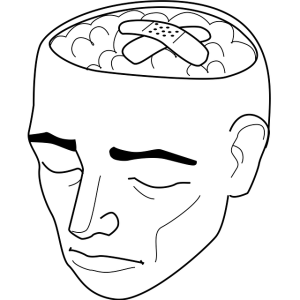Phobia-specific anxiety disorders can significantly impact daily life, but there are effective treatments available. This comprehensive guide explores a range of evidence-based approaches tailored to manage and overcome specific phobias. From cognitive behavioral therapy (CBT) and exposure therapy to mindfulness practices and pharmaceutical interventions, discover the tools to confront and conquer your fears. Additionally, learn about alternative therapies, support systems, and long-term strategies for successful anxiety management.
Understanding Phobia-Specific Anxiety Disorders

Phobia-specific anxiety disorders are a category of mental health conditions characterized by intense and persistent fear or anxiety related to specific objects, situations, or activities. These phobias can significantly impact an individual’s daily life, causing them to avoid certain triggers and leading to feelings of distress and limitation. Understanding the nature of these disorders is crucial in developing effective anxiety treatment strategies.
Each phobia-specific disorder has its unique manifestations, ranging from common fears like arachnophobia (fear of spiders) to more complex and rare conditions. The root causes can vary, often stemming from past traumatic experiences or genetic predispositions. Identifying the specific trigger and personal history is essential in tailoring anxiety treatment to address these distinct disorders effectively.
Cognitive Behavioral Therapy (CBT): Unraveling Fear

Cognitive Behavioral Therapy (CBT) is a highly effective anxiety treatment that focuses on identifying and changing negative thought patterns and behaviors contributing to fear and phobia-specific anxiety. By unraveling the intricate web of thoughts and emotions associated with specific fears, CBT empowers individuals to challenge and replace irrational beliefs with more realistic and balanced perspectives. Through structured techniques like cognitive restructuring and exposure therapy, CBT enables people to confront their anxieties in a safe and controlled manner, ultimately reducing symptoms and improving overall well-being.
Exposure Therapy: Confronting Your Fears Step by Step

Exposure therapy is a highly effective anxiety treatment that focuses on gradually exposing individuals to their feared stimuli in a safe and controlled environment. This step-by-step process allows people with specific phobias to confront and overcome their fears. By breaking down the fear into smaller, manageable parts, patients learn to face their anxieties without avoiding or escaping them.
The therapy begins with identifying the specific phobia and creating a hierarchy of feared situations. Patients then start with less anxiety-provoking scenarios, gradually working their way up to more intense ones. This hierarchical approach enables individuals to gain confidence and realize that they can handle their fears. Through consistent exposure, patients recondition themselves to respond differently to these stimuli, reducing the intensity of their anxiety reactions over time.
Mindfulness and Meditation Techniques for Anxiety Management

Mindfulness and meditation techniques have emerged as powerful tools in the arsenal of anxiety treatments. These practices encourage individuals to focus their attention on the present moment, observing thoughts and feelings without judgment. By cultivating a non-reactive mindset, individuals can learn to disengage from anxious ruminations and reduce the intensity of fear responses.
Meditation, particularly mindfulness meditation, trains the mind to recognize patterns of anxiety and cultivates an increased sense of self-awareness. Regular practice has been shown to decrease symptoms of anxiety disorders, offering a natural and effective anxiety treatment option. Through focused breathing exercises and guided visualizations, individuals can learn to calm their nervous systems, promoting a state of relaxation and improved emotional well-being.
The Role of Pharmaceutical Interventions in Anxiety Treatment

Pharmaceutical interventions play a significant role in managing and treating anxiety disorders, offering valuable support for individuals struggling with various forms of anxiety. These treatments involve the use of medications designed to alleviate symptoms and improve overall well-being. Selective serotonin reuptake inhibitors (SSRIs) are a commonly prescribed class of anti-anxiety drugs, known for their effectiveness in enhancing serotonin levels in the brain, which can significantly reduce feelings of fear, worry, and tension.
Beyond SSRIs, other pharmaceutical options target specific neurotransmitters or neural pathways associated with anxiety. For instance, benzodiazepines may be prescribed for short-term relief during severe anxiety episodes due to their rapid action and calming effects on the nervous system. However, their long-term use is often discouraged due to potential dependence and withdrawal symptoms. Other specialized medications are also available for specific phobias or panic disorders, catering to the unique needs of different anxiety presentations.
Alternative Therapies: Exploring Complementary Approaches

In addition to traditional therapy and medication, there are several alternative approaches that can complement anxiety treatments. Techniques such as mindfulness meditation, deep breathing exercises, and yoga have been shown to effectively reduce symptoms of anxiety by promoting relaxation and calming the mind. Acupuncture and massage therapy are other complementary practices that target the body’s natural stress response, offering a holistic way to manage phobia-specific anxiety.
Alternative therapies also include herbal remedies and dietary changes. Some herbs like lavender and chamomile have natural calming properties, while certain foods and nutrients play a crucial role in brain health and overall well-being. Exploring these complementary methods can enhance the effectiveness of traditional anxiety treatments, providing folks with a more comprehensive approach to managing their phobias.
Building Support Systems for Effective Healing

Building a strong support system is an integral part of any successful anxiety treatment plan. This includes both professional guidance from therapists or counselors and personal connections with friends, family, or support groups. Therapists play a pivotal role in guiding individuals through their fears, teaching them coping mechanisms, and helping them challenge negative thought patterns. They offer a safe space for clients to express their emotions without judgment.
Alongside professional help, personal relationships can significantly contribute to healing. Friends and family members can provide encouragement, understanding, and reassurance during challenging times. Support groups, either in-person or online, offer a sense of community where individuals with shared experiences can connect, share strategies, and offer mutual support. These connections create a network that fosters resilience, promotes emotional well-being, and aids in managing anxiety symptoms effectively.
Long-Term Management and Prevention Strategies

Long-term management and prevention strategies for phobia-specific anxiety treatments are essential for sustained recovery. One key approach is cognitive-behavioral therapy (CBT), which aims to help individuals identify and change negative thought patterns associated with their fears. By learning relaxation techniques, such as deep breathing or meditation, people can effectively manage anxiety symptoms over time. Regular practice of these skills enables individuals to face their phobias gradually, building resilience and reducing avoidance behaviors.
Additionally, medication, particularly selective serotonin reuptake inhibitors (SSRIs), can play a vital role in long-term management. SSRIs help regulate mood and reduce anxiety, providing a supportive framework for CBT and exposure therapy. Consistent use of these medications, combined with ongoing therapy, can significantly prevent relapse and promote overall well-being. Lifestyle changes, including regular exercise, adequate sleep, and stress management techniques, further bolster the effectiveness of anxiety treatment strategies.
